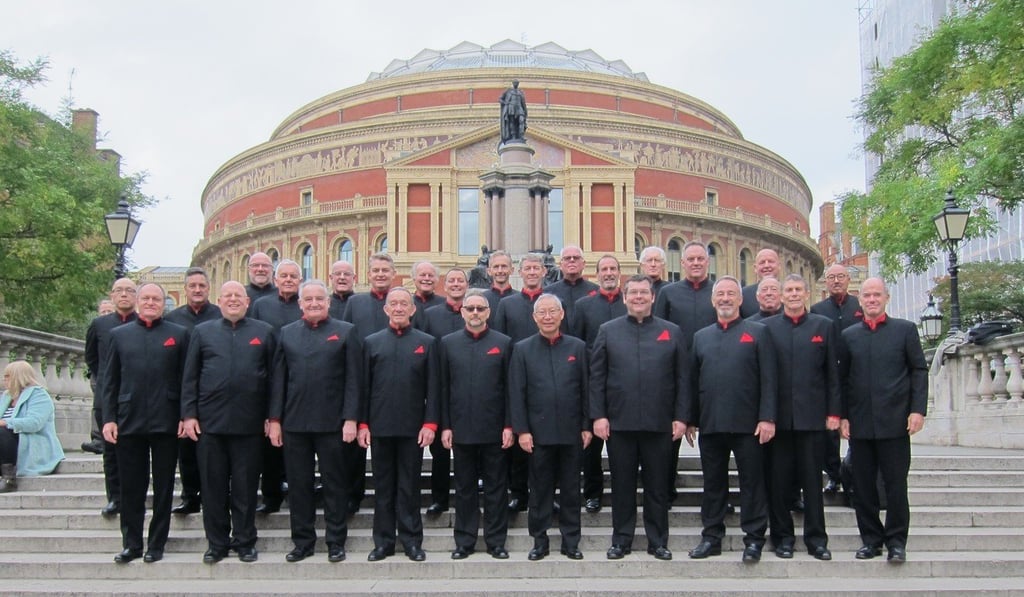Wales debut for multicultural Hong Kong Welsh Male Voice Choir at the Llangollen International Eisteddfod
- The choir celebrates its 40th anniversary this year and the members have never sung in Wales before
- Its members come from various nationalities and cultures, and will perform songs in Chinese at the festival

On a recent Sunday morning, the Li Hall near St John’s Cathedral in Hong Kong was suffused with lush, four-part harmonies as the Hong Kong Welsh Male Voice Choir practised Ar Hyd Y Nos.
Simon Clennell, the choir’s tour organiser and a long-time member, believes the participation in the Llangollen festival – a major international music event held every summer in the Welsh town since 1947 – will be a landmark event for the group.
“We wanted to do something special and different for the 40th anniversary,” he says. “We’ve never sung in Wales before.”

Founded in 1978 by expatriate Welshmen following an impromptu gathering around a piano at the St David’s Society Welsh Ball, the choir is today made up of members of various nationalities and cultures. This increasingly cross-cultural personality is reflected in its musical repertoire and programme for the upcoming Llangollen festival.